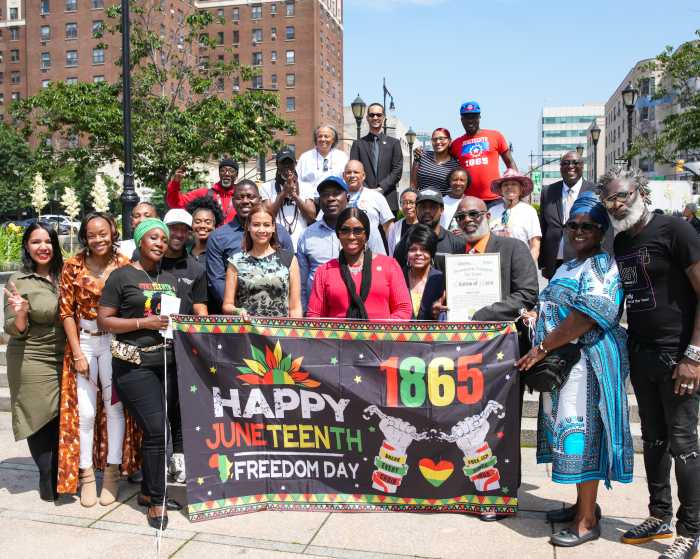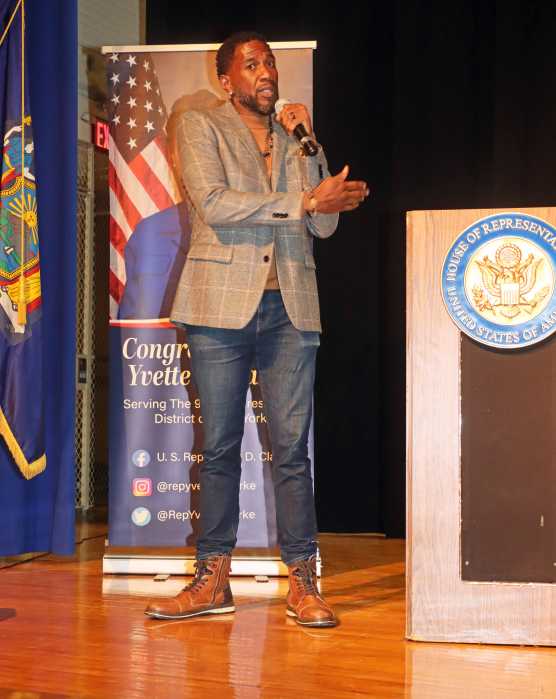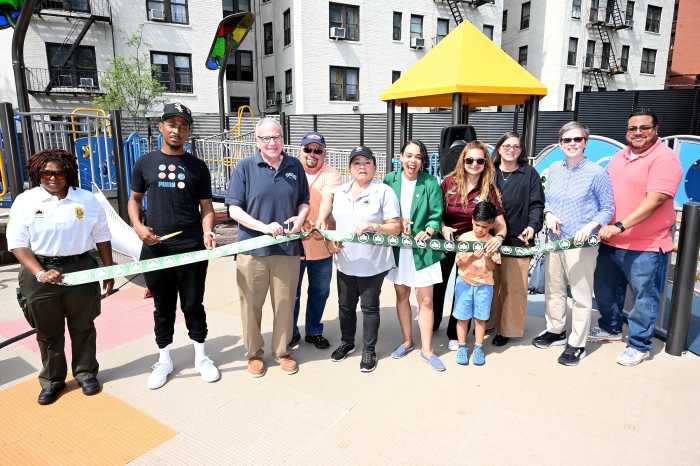With the holiday season here, many of us are last-minute shopping and making plans to spend quality time with family and friends. We’re celebrating the good fortune of the past year and looking forward to opportunities promised by the new one.
But for hundreds of thousands among us with past criminal records, the overwhelming majority black and brown, it can be hard to celebrate, and the New Year brings little in the way of good news.
That’s because in New York, most criminal records – some of them decades old – are only a few clicks away for almost anyone, including employers and landlords, to see. This costs people jobs, creating a constant struggle for individuals to provide for themselves and their families or pay the rent on an apartment where everyone can live – assuming a landlord will rent to them in the first place. It’s hard to feel like celebrating when you can’t make ends meet or keep a roof over your head.
Even though New York is known worldwide as a center of opportunity, many opportunities are closed off to people who have committed a crime. No matter what they’ve done to repay their debt to society, no matter what changes they’ve made in their life since they were convicted, New Yorkers with criminal records are often unable to move forward simply because we don’t have strong laws to clear past criminal records.
One of the authors of this piece, Zaki Smith, has experienced this personally. Thirteen years after being released in 2004, Smith was living in New York and working as a youth mentor for a nonprofit organization that serves public schools in New Jersey. One day, on his way out the door for work, he received a letter from the state Board of Education stating that he could no longer work in any New Jersey school because they had discovered his criminal record in New York. More than a decade after he served his prison sentence in full and dedicated his life to serving at-risk youth, Smith was abruptly cut off from his means of contributing to society and his livelihood because his employer could easily dig up his past.
Stories like Smith’s are all too common in our state. Criminal records in New York, with limited exceptions, follow people for the rest of their lives. And once a record is public, discrimination and roadblocks follow. Even though we have laws — well-intentioned ones, some in place since the 70s — to prohibit job discrimination on account of a criminal record, they are hard to enforce, and employers violate them right and left with little fear of repercussion. And no parallel laws even exist when it comes to housing.
We know this must change. Legislators and advocates have tried to alter the harsh reality of a permanent record for decades, and in 2017 they partly succeeded: New York’s Raise the Age law included a provision — C.P.L. §160.59 — allowing certain people to petition a court to seal their criminal records. It was a hard-fought win that deserves praise: It created the first real records-clearance opportunity many in New York had ever seen.
But fewer than 1 percent of those thought eligible have been able to benefit, and it is time we expand the reach of the law.
First, under the current law, a person can have only two convictions in their entire lifetime. This knocks out millions of New Yorkers, including those who struggled with drug addiction, mental illness and/or homelessness and racked up dozens of minor convictions simply trying to survive. It also knocks out the many New Yorkers, mostly black and brown, who live in over-policed communities and endured the wrongs of aggressive stop-and-frisk practices.
Second, at least 10 years must have passed since the person’s last conviction (or release from incarceration, whichever is later).
Finally, individuals must petition a court to get relief, and the process is so complex that it often requires a lawyer. People who’ve been held back by stale criminal records often don’t have the means to pay private lawyers, and free legal assistance is not only hard to come by, in many parts of the state it’s nonexistent.
For all these reasons and more, the Clean Slate New York campaign — involving people with lived experience, advocates and grassroots groups — together with a growing number of legislators, are pressing for a law creating automatic criminal records expungement. This law would build on principles and processes of automatic expungement provisions in the marijuana decriminalization bill we passed last session, and would bring relief for hundreds of thousands of New Yorkers who face enduring effects of encounters with punishment. States including New Jersey, Pennsylvania, Indiana and even Utah have passed equivalent laws, and it’s time that we do the same.
A criminal conviction shouldn’t be a life sentence to second class status, but for many of our friends, neighbors, family members and fellow New Yorkers, that’s exactly what it is. The New Year is coming. Let’s pass legislation giving people a real chance at a fresh start, something more meaningful than any gift money can buy.
Myrie represents parts of Sunset Park, Park Slope, Crown Heights and other neighborhoods in the state Senate. Smith is a policy entrepreneur at Next100.


























